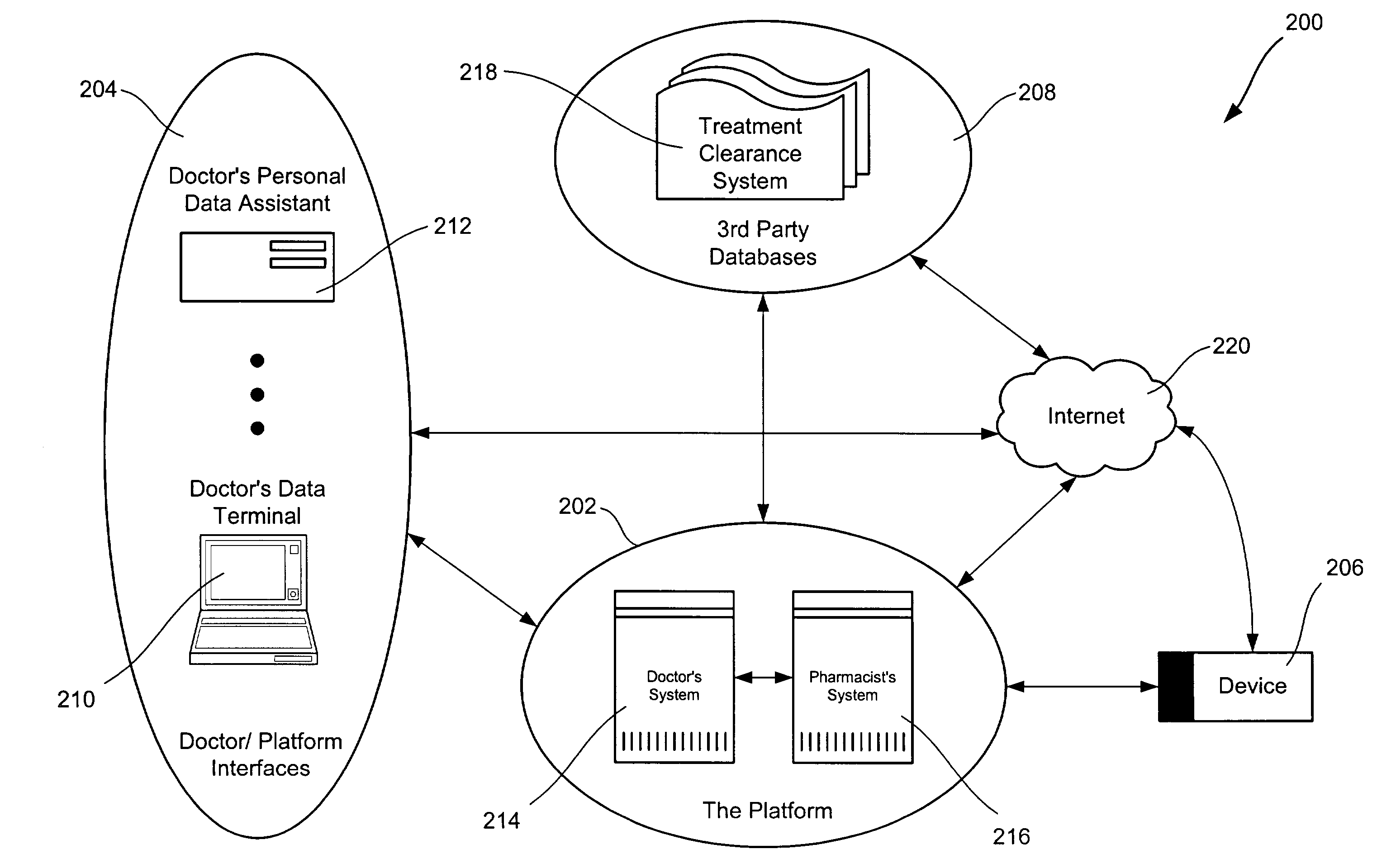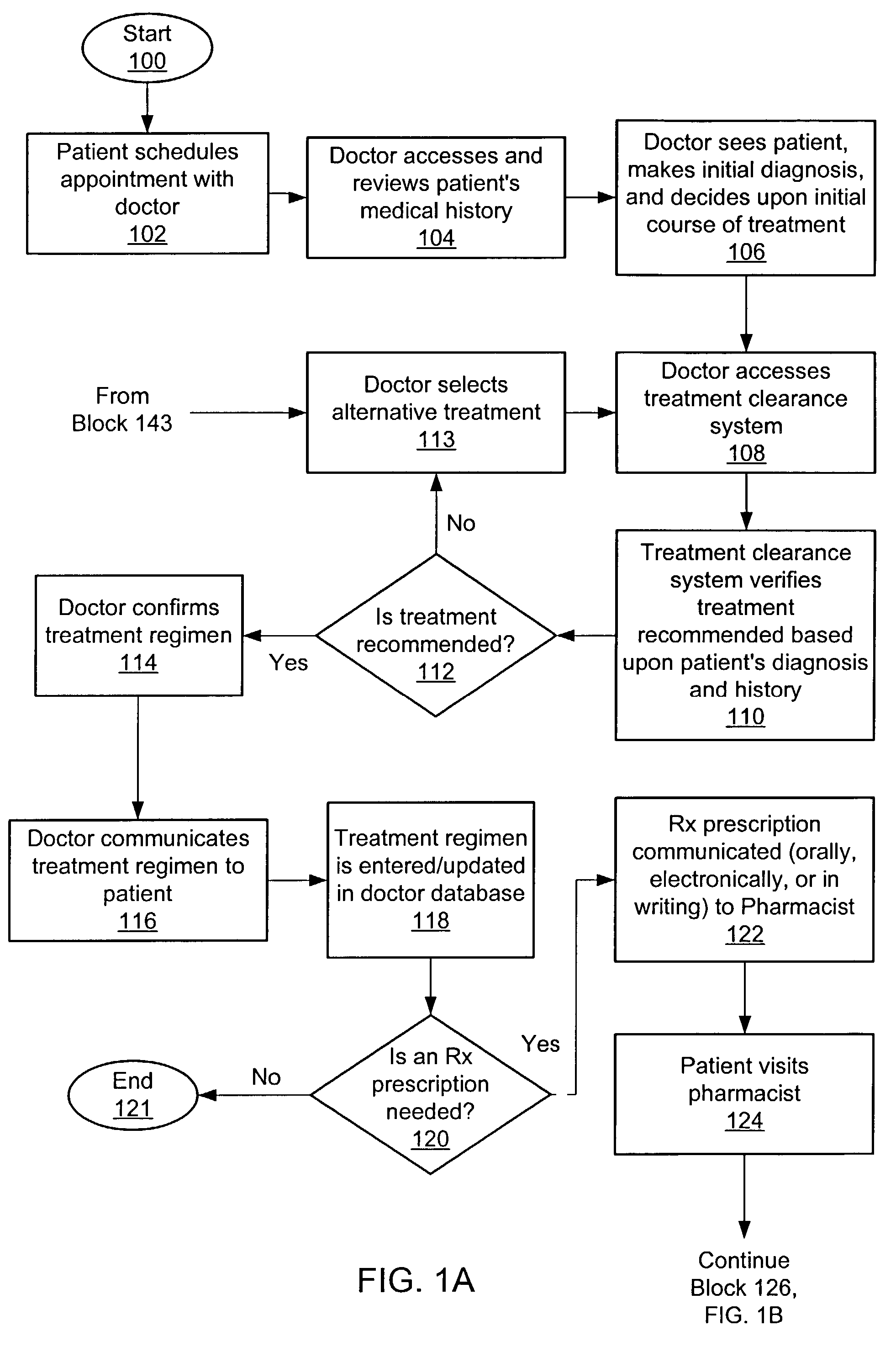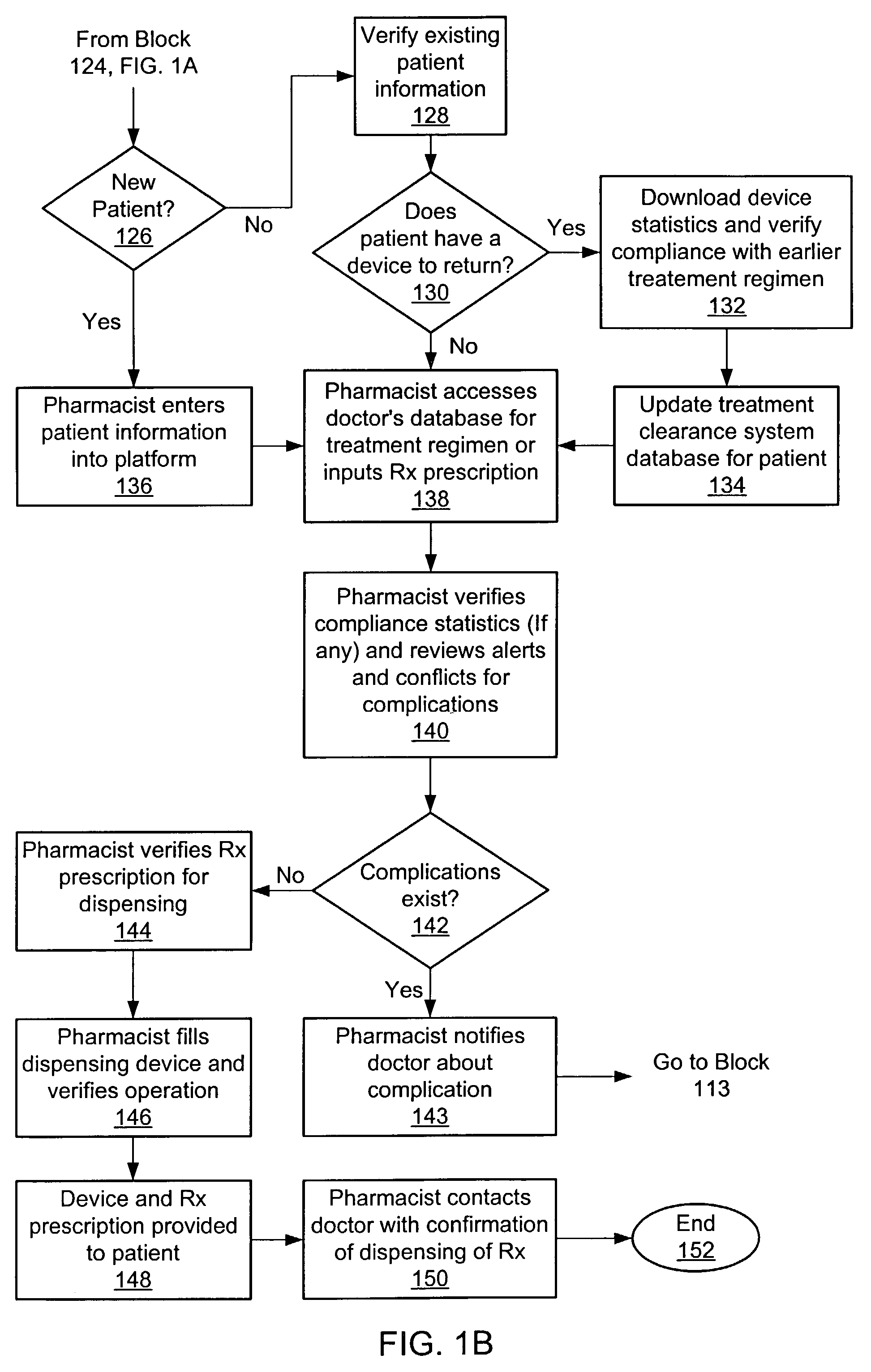Apparatus, device and method for prescribing, administering and monitoring a treatment regimen for a patient
a technology for monitoring and prescribing patients, applied in the field of medical treatment compliance programs, can solve the problems of increasing compliance problems, shortages of qualified nurses or caregivers, and the inability to monitor the compliance of patients with treatment regimens, so as to facilitate the provision of specific and individualized instructions
- Summary
- Abstract
- Description
- Claims
- Application Information
AI Technical Summary
Benefits of technology
Problems solved by technology
Method used
Image
Examples
Embodiment Construction
[0040]As mentioned previously, various embodiments of the present invention provide at least one process and / or system for diagnosing, prescribing and monitoring a patient's compliance with a treatment regimen. More specifically, in a first embodiment, a Doctor diagnosing a treatment regimen to a patient may utilize the systems and processes described herein to more accurately determine whether a diagnosis and contemplated treatment regimen is not contra-indicated for a specific patient based upon a medical history, prior or current medications taken, how the patient is presented, and / or other information and factors. Additionally, the Doctor may tailor the treatment regimen specifically to the patient by providing verbal or visual instructions via a Device to the patient regardless of the time, date, or location of the patient (provided the Device is accessible to the patient at such times). Similarly, various embodiments of the present invention enable Pharmacists to more accurate...
PUM
 Login to View More
Login to View More Abstract
Description
Claims
Application Information
 Login to View More
Login to View More - R&D
- Intellectual Property
- Life Sciences
- Materials
- Tech Scout
- Unparalleled Data Quality
- Higher Quality Content
- 60% Fewer Hallucinations
Browse by: Latest US Patents, China's latest patents, Technical Efficacy Thesaurus, Application Domain, Technology Topic, Popular Technical Reports.
© 2025 PatSnap. All rights reserved.Legal|Privacy policy|Modern Slavery Act Transparency Statement|Sitemap|About US| Contact US: help@patsnap.com



